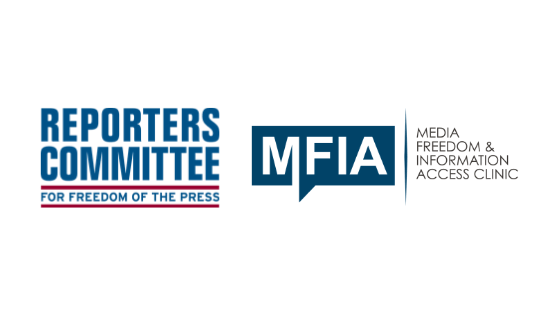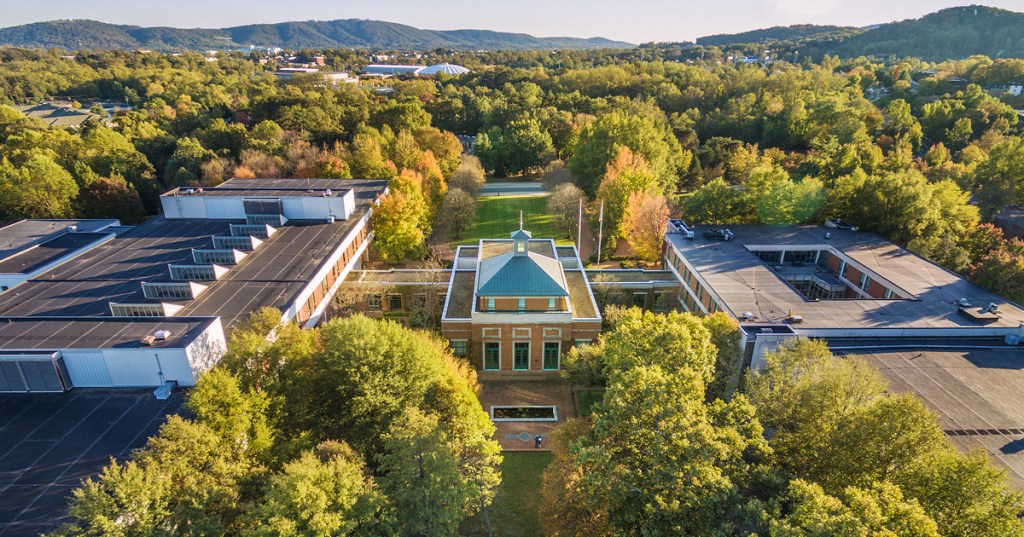University legal clinics, professors form national network to advance free speech and government transparency

WASHINGTON – The Reporters Committee for Freedom of the Press and Yale Law School’s Media Freedom and Information Access Clinic announced today the launch of the Free Expression Legal Network, a coalition of law school clinicians and academic non-clinicians who provide pro bono legal support for public interest journalism.
“Reporters today face many obstacles in covering public officials and public issues, just as they are confronted with a dramatic resources crunch,” said Bruce Brown, executive director of the Reporters Committee and co-chair of the FELN steering committee. “Law school clinics, academics, nonprofits, and funders are stepping up to meet this growing need for pro bono legal services. We are excited by the response of this community to these challenges.”
At its launch, FELN includes 22 law school clinics that provide students hands-on experience representing journalists and documentary filmmakers, among others. The network also includes two dozen law professors who frequently write and research in the areas of free expression, media law and government transparency. The clinicians and professors are joining in a network to promote collaboration and to better meet this challenging environment for transparency and free expression.
FELN members have handled a diverse array of cases in recent years. For example, members represented a nonprofit news organization seeking public records about officials’ actions surrounding a securities fraud scandal; successfully challenged an unconstitutional gag order against a local journalist in Bakersfield, California, in a closely watched case involving the indictment of a local politician; advised filmmakers on a documentary about San Diego’s LGBTQ history; conducted trainings on how to use government open records laws;and submitted an amicus brief in a case in which the court was preparing to sentence a government employee who disclosed classified information of significant public interest to a journalist.
“FELN will allow new clinics to lean on the expertise of more established programs, while helping members collaborate on projects and defend the constitutional rights of free speech and a free press,” said David A. Schulz, co-director of Yale Law School’s Media Freedom and Information Access Clinic and co-chair of the FELN steering committee. “The network will strive to be an integral element in the continued protection of an informed citizenry and the free flow of information that is essential to a government accountable to the people.”
The network grew out of discussions between the Reporters Committee, a national nonprofit offering free legal services and resources to journalists, and the Yale MFIA clinic. Other members of the steering committee include Mark Jackson, director of the Cornell Law School First Amendment Clinic; Patrick Kabat, adjunct professor at Cleveland-Marshall College of Law; Heidi Kitrosser, the Robins Kaplan Professor of Law at the University of Minnesota Law School; and Jonathan Manes, director of the Civil Liberties and Transparency Clinic at the University at Buffalo School of Law.
The Reporters Committee provides day-to-day support for FELN and Reporters Committee lawyers direct the First Amendment Clinic at the University of Virginia Law School.
Yale’s MFIA Clinic organizes an annual conference on free press and government accountability, where FELN members share teaching and practical tips and learn from other experts in the field. This year’s “Access and Accountability Conference” will be Oct. 4–5 in New Haven, Connecticut.
More information about the network is available at FreeExpression.law.
The full list of members is as follows:
Albany Family Violence Litigation Clinic
Albany Health Law Clinic
Albany Immigration Law Clinic
American University Glushko-Samuelson IP Law Clinic
ASU First Amendment Clinic
BU/MIT Technology Law Clinic
Buffalo Civil Liberties & Transparency Clinic
California Western New Media Rights
Case Western Reserve Intellectual Property Venture Clinic
Cornell First Amendment Clinic
Duke First Amendment Clinic
Harvard Cyberlaw Clinic
Michigan State University First Amendment Law Clinic
NYU Technology Law & Policy Clinic
UC-Berkeley Samuelson Law, Technology & Public Policy Clinic
UCI Intellectual Property, Arts, and Technology Clinic
UCLA Documentary Film Legal Clinic
UCLA Scott & Cyan Banister First Amendment Clinic
University of Virginia First Amendment Clinic
Vanderbilt First Amendment Clinic
Washington University First Amendment Clinic
Yale Media Freedom & Information Access Clinic
